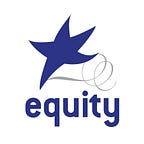CULTURAL NEEDS ACKNOWLEDGED IN GROUNDBREAKING AGREEMENT
In the lead-up to its production of Hamilton, Michael Cassel Group has signed an historic agreement with Equity which, among other benefits, includes the granting of paid leave for ceremonial purposes, writes Nathalie McLean.
In November, Equity reached an historic agreement with Michael Cassel Group for a Performers’ Collective Agreement that will result in performers being significantly better off when engaged on the company’s future productions, including Hamilton. The agreement includes significantly higher minimum rates of pay, caps on overtime and nine show weeks, and restrictions on social-media takeovers.
This is the first Equity agreement with a cultural-leave clause, which ensures any performer required by tradition to be absent from work for ceremonial purposes will be entitled to apply for up to 10 working days’ paid leave in any one year.
With this agreement, the Michael Cassel Group recognises that the cast and crew of Hamilton are incredibly diverse and their workplace needs many and varied because of that.
The cultural leave is more attuned to the lived experiences of Aboriginal and Torres Strait Islander people, who are dealing with trans-generational trauma and bearing the cultural load, as well as the experiences of the wider BIPOC community. Indigenous people in Australia experience the highest incarceration rates on the planet.
Many Indigenous members of our industry have felt their unique culture was not adequately acknowledged, particularly by existing leave entitlements.
They often feel pressure in meeting cultural responsibilities to their extended family and community. Ensuring all employees are aware of what cultural and ceremonial leave is, and why it’s important, is vital towards building an inclusive workplace.
As Indigenous Australians, we are inherently connected to our culture and cannot be expected to leave it at home when we come to work.
We regularly draw on ancestral and cultural knowledge to do our jobs as performers. This applies to most of the BIPOC community.
Most Indigenous performers are working as cultural consultants alongside other creatives in their respective teams, but often our language, art, stories and knowledge are unprotected and unacknowledged. It’s vital to recognise and protect the cultural and intellectual property of performers, cast and crew, and make sure our productions are culturally responsible.
As well as the 10 days’ leave, the new MCG agreement ensures that the producer can engage a consultant to safeguard the cultural integrity of a production. Many theatre companies do this on a voluntary basis, but to have a clear example of how it can be done more formally will set the future tone for the industry.
Embracing diversity in the workplace via clauses in our collective agreements is a huge step forward for us an industry.
It’s the first move in ensuring all staff feel valued for their individual qualities and perspectives. This extends to understanding the differences and similarities we share, and that staff may celebrate and recognise important cultural or religious events throughout the year, such as Lunar New Year, Diwali, Ramadan and NAIDOC Week.
This will be the first of many Equity agreements that celebrate and acknowledge the myriad cultural differences and needs of all Indigenous Australians.
Nathalie McLean is a saltwater and desert woman descended from the Wakka Wakka, Gubbi Gubbi and Kullali clans in Queensland. Now living in Naarm (Melbourne), she is a multidisciplinary artist, entrepreneur and active member of the MEAA Indigenous Committee. She is a First Nations First Peoples Organiser at MEAA, working alongside Elaine Crombie.
